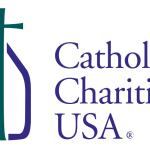San Antonio, Texas, Jan 9, 2017 / 03:27 pm (CNA/EWTN News).- It’s not every day that 13,000 college students come together to pray, participate in the sacraments, and learn more about their faith. But that’s exactly what happened last week, as students from more than 500 colleges across the country and around the world traveled to San Antonio, Texas for the SEEK 2017 conference. Presented by the Fellowship of Catholic University Students (FOCUS), the Jan. 3-7 conference gave young people the opportunity for fellowship, worship and talks by international Catholic speakers. “It’s kind of encouraging to see that there’s people trying just like you are,” said Cynthia Lopez, a sophomore at Northern Arizona University. Lopez told CNA that she was not initially going to attend the conference. She signed up for the biennial event on the last day of registration because her campus’ FOCUS Missionary invited her. “Sometimes you do feel like you’re alone in the world,” Lopez said, “like you’re the only college student trying to be holy, but it’s like no you aren’t, look around you.” “It’s hard to be holy and saintly at a secular university,” she said. The SEEK 2017 conference, she added, taught her to build up a support system. Melissa Golus, a senior at Benedictine College in Atchison, Kansas said SEEK 2017 is “giving you the tools that you need to know in order to go back to your college, even if you’re the only one at your campus that has that faith, it’s okay. It’s okay for you to go out and maybe invite other people to join you.” In response to being surrounded with so many other young people, Golus said, “It’s amazing.” “You don’t see that kind of thing in this world, like, this is the kind of stuff that’s put on the hush hush because it’s amazing to see this many people that passionate about God.” The theme of this year’s SEEK conference was “What Moves You.” Each day began with Mass and more than 300 priests concelebrated with the archbishops in attendance. Students then broke off into separate women’s and men’s sessions to engage in a fun battle of the sexes and learn more about authentic masculinity and femininity. Throughout the afternoon, the students were able to visit various vocational and ministry-related booths set up around the Henry B. Gonzalez Convention Center. They also attended breakout sessions which allowed them to hear from more than 35 prominent Catholic speakers about relatable topics such as “Who Am I to Judge? - How To Respond To Relativism With Logic and Love.” In Jeff Cavins’ two talks: “Jesus & the Modern-Day Disciple” and “How to Read the Bible as a Disciple,” the Biblical scholar stressed the importance of creating a personal relationship with Christ and seeing Him in everyday life. “I started to realize that many people today don’t have in their mind a picture of what it means to be a disciple in a practical way,” he told CNA. Cavins said one of the things that young people are missing is the personal relationship with God. “That part of being conscious of the fact that I am really following him through everyday, that He is with me, and that this isn’t make up stuff. I’m not making stuff up. It’s not theory. He’s with us right now and He wants us to continue His mission,” he said. Recently, Cavins teamed up with Ascension Press to create an online video series called “Encountering the Word.” He said, “I think that the key right now is to reach this generation that is coming to SEEK.” “They’re the game changes. They’re the ones that are out there in the world. They’re not the future Church, they are the Church.” Curtis Martin, the founder and CEO of FOCUS, told CNA that a college campus is “the most leveraged place in the culture.” “If you wanted to change everything, you need to go there first,” Martin said. The future youth ministers, married couples, teachers, priests, etc, he added, are all passing through their universities now. Right now, there are more than 550 FOCUS full-time missionaries on 125 college campuses in 38 states and even as far as Austria. Martin said the idea that “one person could be so on fire for love of Christ, they would invest their lives in a handful of others, and just love them and invite them to do the same,” can be done and should be done everywhere. In February 1997, Curtis Martin and Dr. Scott Hahn announced the start of FOCUS on ‘Mother Angelica Live!’ At that point, the organization did not even exist, but Hahn said, “it’ll have to exist after we announce it.” During their episode, Mother Angelica was so excited about the new initiative that Martin said she told the viewers to give their money to FOCUS. “We raised about 10,000 dollars that night and that was the start,” he said. At that time, Archbishop Charles Chaput – then the archbishop of Denver – invited FOCUS to find a home in his diocese. “In those early days,” Archbishop Chaput said, “it already looked like it would be successful from the very beginning but not in the same scale that it is now.” According to FOCUS, their first National Conference in 1999 held only 25 students. “Now it’s nearly 13,000 at this gathering,” the archbishop said. “It’s wonderful to see it. It’s been a lot of years but it’s certainly borne fruit in ways beyond my imagination, anyway.” Curtis Martin explained to CNA that this year’s SEEK numbers represent, “only about 25 percent of the students involved in our program and represents maybe two or three percent of our alumni.” “So there are actually tens of thousands more people out there who are also on mission with us,” he said, “That gives me great hope because we live in a world that needs more missionary disciples.” Dr. Scott Hahn said that at the SEEK conferences, “the joy of the Lord is what people experience here more than anything else.” The key to the New Evangelization, he said, is the joy of the Gospel like Pope Francis says. “All you have to do is enjoy being Catholic,” because that’s what other people are really looking for, Dr. Hahn said. “And in the process,” he added, “you’re really extending friendship.” “It’s not just 13,000, it’s the hundreds of thousands that will be reached by these 13,000.” After attending SEEK 2017, Arturo Rodriguez, a student at the University of Texas of the Permian Basin, said that now he’s “just really inspired to show that inspiration towards others so that I can cheer them up and so that I can see that inspiration and just get closer to God himself.” Rodriguez said his favorite part of the conference was the Eucharistic Adoration on Thursday night, in the main hall, with all 13,000 people. “It was the best Adoration I’ve ever attended,” he said. More than 4,000 confessions were also heard that night. Rodriguez said that when he goes home, he is going to seek out whatever opportunities are offered at his college so he can be even more involved in his faith. During the other nights of the conference, students attended a comedy show by Michael Jr. and a concert by the folk rock band, The Oh Hellos. Curtis Martin said that although he may not know everyone at the SEEK conference now, “Our hope would be everybody here is known, loved and cared for by someone else in the name of Jesus Christ.” “People need to know that they were made to be amazing.” He said too many people are settling for mediocrity. “Jesus Christ made you for a purpose. He’s waiting for you to live radically for him.” <blockquote class="twitter-tweet" data-lang="en"><p lang="en" dir="ltr">I never thought ???? that there are so many real Catholics in the ???????? that have their faith so ????????. Amazing. God bless America!!! <a href="https://twitter.com/hashtag/seek2017?src=hash">#seek2017</a></p>— ks. Maciej S?y? (@xmslyz) <a href="https://twitter.com/xmslyz/status/817588601072603136">January 7, 2017</a></blockquote> <script async src="//platform.twitter.com/widgets.js" charset="utf-8"></script> <blockquote class="twitter-tweet" data-lang="en"><p lang="en" dir="ltr">Just saw a priest crowd surfing at the Oh Hellos Concert. <a href="https://twitter.com/hashtag/OnlyAtACatholicConference?src=hash">#OnlyAtACatholicConference</a> <a href="https://twitter.com/hashtag/SEEK2017?src=hash">#SEEK2017</a></p>— Giancarlo Bernini (@Gian_Bernini) <a href="https://twitter.com/Gian_Bernini/status/817596335306186752">January 7, 2017</a></blockquote> <script async src="//platform.twitter.com/widgets.js" charset="utf-8"></script> <blockquote class="twitter-tweet" data-lang="en"><p lang="en" dir="ltr">If Jesus isn't the Lord of all, he isn't the Lord at all. - Curtis Martin <a href="https://twitter.com/hashtag/seek2017?src=hash">#seek2017</a></p>— Kevin Cotter | FOCUS (@KevinRCotter) <a href="https://twitter.com/KevinRCotter/status/817757971098857473">January 7, 2017</a></blockquote> <script async src="//platform.twitter.com/widgets.js" charset="utf-8"></script> <blockquote class="twitter-tweet" data-lang="en"><p lang="en" dir="ltr">I think it's safe to say that this has been the best week of my life. <a href="https://twitter.com/SEEKConference">@SEEKConference</a>, <a href="https://twitter.com/hashtag/seek2017?src=hash">#seek2017</a></p>— mitchell davis (@davismitchell14) <a href="https://twitter.com/davismitchell14/status/817742307013361664">January 7, 2017</a></blockquote> <script async src="//platform.twitter.com/widgets.js" charset="utf-8"></script> Read more















